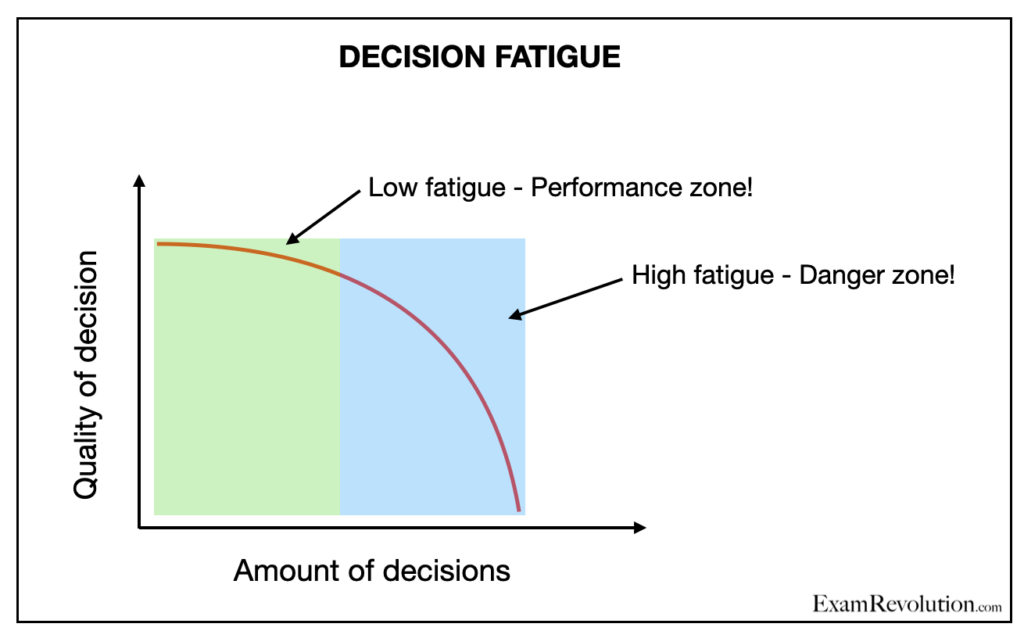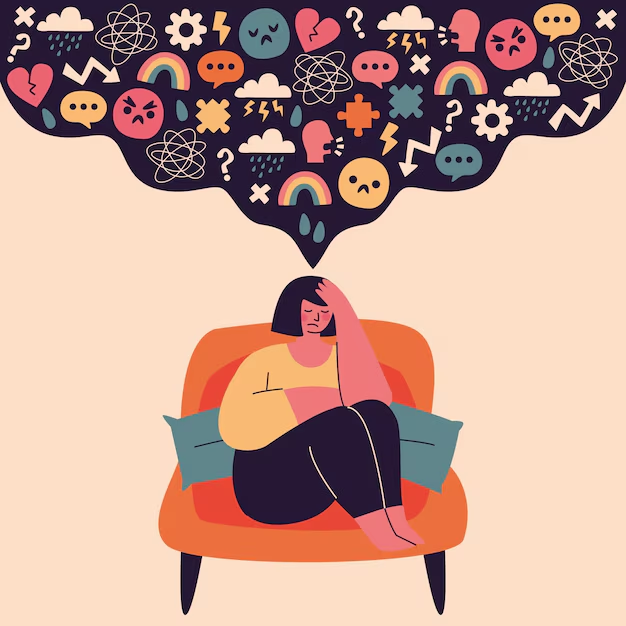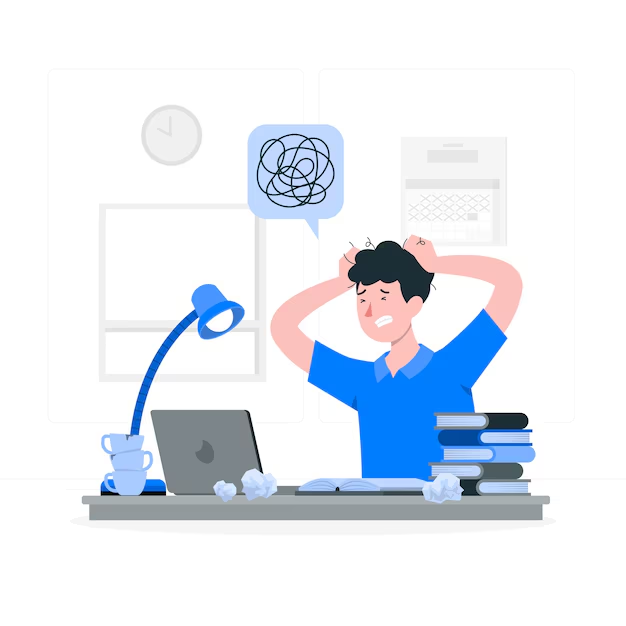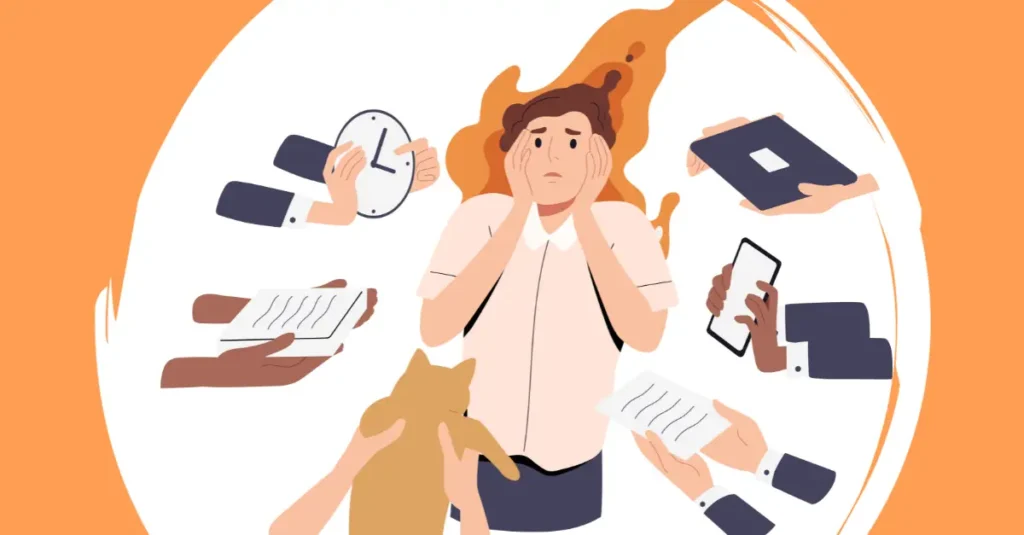Introduction
In the fast-paced, choice-heavy environment of the modern world, making decisions is an inevitable part of our daily lives. From the seemingly trivial decisions—what to eat for lunch, what to wear—to the more consequential choices—where to go for college, how to manage your finances—our ability to make decisions shapes the way we navigate life. However, recent psychological research has unveiled a fascinating phenomenon- decision fatigue.

Decision fatigue refers to the deteriorating quality of decisions made after a long session of decision-making. This psychological state occurs when our cognitive resources, which are used to make choices, become depleted. As a result, we tend to make impulsive or suboptimal choices, or even avoid making decisions altogether. Understanding decision fatigue can offer insights into improving decision-making processes, productivity, and well-being.
Read More- Social Media and Mental Health
What is Decision Fatigue?
Decision fatigue is a psychological phenomenon that arises when individuals are faced with making numerous decisions, causing mental depletion. Research by Baumeister et al. (1998) established that decision-making requires mental energy, and this energy is finite. As we make decisions, we deplete our cognitive reserves. After a series of decisions, individuals can experience a decline in decision-making quality, often resulting in lower self-control, impulsive choices, and avoidance behaviors.

This phenomenon is especially evident in high-stakes environments where individuals are required to make continuous decisions, such as in business, law, and medicine. In everyday life, however, it’s present in seemingly simple situations: from deciding what to wear in the morning to choosing between various brands at the grocery store.
How Decision Fatigue Affects Our Choices
While making decisions may seem like an activity that should have minimal consequences, the depletion of mental resources can have significant effects on the quality of our choices. The impact of decision fatigue manifests in various ways:
- Reduced Willpower- Studies show that as mental energy becomes depleted, we experience reduced willpower. This is why people may opt for unhealthy foods or skip a workout later in the day—acts that require a higher level of self-regulation are more challenging when we are mentally fatigued (Baumeister et al., 1998).
- Impulsive Decisions- Under the influence of decision fatigue, people are more likely to make rash, impulsive choices. Instead of carefully considering alternatives, individuals may go with the easiest, quickest option, even if it’s not the best one. For instance, after a long workday of decision-making, someone may make an impulsive purchase online or choose a quick takeout meal instead of preparing something healthier.
- Avoidance and Indecision- One of the most common responses to decision fatigue is avoidance. When faced with more decisions, we may experience an overwhelming sense of indecision, often choosing to delay or put off the task entirely. This can manifest in procrastination, where individuals procrastinate on making even small decisions due to the cognitive strain involved.
- Escalation of Commitment- Another result of decision fatigue is the tendency to stick to suboptimal decisions. Once a choice is made, we often invest additional time and effort into that decision, even when it becomes clear that it was not the best one. This is referred to as escalation of commitment or the “sunk cost fallacy,” where people continue pursuing a course of action because of the resources they’ve already invested, regardless of the diminishing returns.

The Science Behind Decision Fatigue
Several studies provide insights into how decision fatigue functions in real-world contexts. One notable study conducted by Danziger et al. (2011) examined the decision-making process of judges in Israel. The researchers found that the likelihood of a judge granting parole to an inmate was much higher early in the day compared to the end of the day. Judges who had made many decisions earlier in the day were less likely to grant parole, showing a clear correlation between mental exhaustion and less favorable decisions.
This study is an excellent example of how even professionals, who are accustomed to making important decisions, can be influenced by decision fatigue. For judges, lawyers, and doctors, decisions can have profound implications, yet mental exhaustion can lead to oversights or errors. This phenomenon highlights the importance of managing mental resources throughout the day.
Why Does Decision Fatigue Happen?
The brain’s prefrontal cortex plays a crucial role in decision-making, problem-solving, and self-control. This area of the brain is responsible for higher cognitive functions, and as such, it uses a substantial amount of energy during decision-making tasks. Research by Baumeister (2011) revealed that decision-making depletes the brain’s energy stores, leading to decision fatigue. Once cognitive resources are used up, the brain defaults to quicker, easier decisions or avoidance strategies to conserve energy.
This depletion of cognitive resources is compounded by the number of decisions we make daily. Studies estimate that an average adult makes thousands of decisions each day. These range from trivial choices, like whether to have coffee or tea, to more significant ones, such as career choices or managing finances. As we process these decisions, our mental energy is consumed, leading to decision fatigue.
How to Manage Decision Fatigue
While decision fatigue is a natural result of the mental strain caused by making multiple decisions, there are strategies to manage and mitigate its effects.
- Prioritize Important Decisions Early in the Day- Research suggests that we have the most cognitive energy in the morning, shortly after waking up. By addressing complex or high-stakes decisions early in the day, we can capitalize on our cognitive energy. By the afternoon or evening, when decision fatigue sets in, it is better to focus on routine tasks that require less mental effort.
- Simplify Your Choices- One of the simplest ways to prevent decision fatigue is to limit the number of decisions you make in a day. This can be achieved by simplifying daily routines. For example, pre-planning meals, laying out clothes the night before, or even using a “uniform” approach to dressing (like Steve Jobs’ iconic black turtleneck) can reduce the number of decisions you need to make.
- Breaks and Rest- Just as physical fatigue is relieved by rest, mental fatigue requires breaks to recharge. Studies show that taking regular breaks during decision-heavy tasks helps replenish mental energy. Even short periods of rest or switching to a different type of task can reduce the impact of decision fatigue.
- Delegate Decisions- If possible, delegate low-stakes decisions to others. For example, asking someone else to decide on the restaurant for dinner or giving employees some autonomy in decision-making can help conserve mental resources for more important choices.
- Develop Healthy Habits- Automating decisions through habits can reduce cognitive load. For example, creating routines for daily activities or setting financial automations can free up mental energy for more critical tasks. Additionally, habits related to self-care—such as regular exercise, sleep, and a balanced diet—can help boost cognitive function and resilience to decision fatigue.
Read More- Breaking Bad Habits
Conclusion
Decision fatigue is a powerful psychological force that can impair our judgment and lead to suboptimal decisions. Understanding its causes, recognizing its signs, and implementing strategies to manage it can help us maintain mental clarity and make better choices. By reducing unnecessary decisions, prioritizing important choices, and taking regular breaks, we can minimize the impact of decision fatigue on our lives and enhance both productivity and well-being.
In an age where we face countless decisions every day, understanding how decision fatigue operates can help us become more mindful decision-makers, capable of navigating life’s complexities with greater focus and efficiency.
References
Baumeister, R. F., Bratslavsky, E., Muraven, M., & Tice, D. M. (1998). Ego depletion: Is the active self a limited resource? Journal of Personality and Social Psychology, 74(5), 1252–1265.
Danziger, S., Levav, J., & Avnaim-Pesso, L. (2011). Extraneous factors in judicial decisions. Proceedings of the National Academy of Sciences, 108(17), 6889–6892.
Baumeister, R. F. (2011). Willpower: Rediscovering the greatest human strength. Penguin Press.
Subscribe to PsychUniverse
Get the latest updates and insights.
Join 3,043 other subscribers!
Niwlikar, B. A. (2025, January 23). Decision Fatigue and 5 Important Ways to Manage It. PsychUniverse. https://psychuniverse.com/decision-fatigue/




Pingback: 4 Interesting Mind Hacks That Make the Pomodoro Technique Work - PsychUniverse
Pingback: Moral Fatigue: 7 Important Ways to Embrace Positive Change
Pingback: 7 Surprising Psychological Reasons Gen Z Hates Phone Calls - PsychUniverse
Pingback: The Psychology of Mental Clutter and 4 Important Strategies to Manage It - PsychUniverse